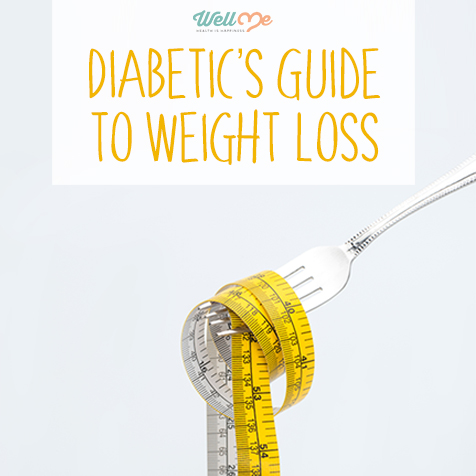When you are overweight or obese, not only do you not look or feel your best, but it can be extremely bad for your health. This is particularly true if you are obese or if you have other health conditions come about due to this status. Losing weight is imperative, but it does require a lot of effort. For some people it seems overwhelming to think of everything involved in losing weight which may be why overweight and obesity has become such an epidemic.
Being overweight is a problem in and of itself, though it’s a very common one. People gain weight for a variety of reasons, and it can be hard to lose. That doesn’t mean that you should stop trying, but it does explain why so many people continue to stay in their overweight status. It’s important to look at what this status can mean on a long-term basis. If you have a family history of certain health conditions, you may be putting yourself at a direct and very likely risk of developing them yourself.
Continuing to be overweight can be very taxing on the body, so it is time to understand how this all works and why it’s so dangerous. One of the most notable risks of being overweight in the long term is the fact that it can result in diabetes. If you have a family history of diabetes, you have an even greater likelihood of developing it. You can clearly see that the risks are there and that it is something to be aware of.
The Real Obesity and Diabetes Epidemic
Every year, obesity rates and diabetes rates continue to rise. You might not think that the two are closely linked, but there is a very real correlation. As a matter of fact, obesity is the number-one contributing factor to Type 2 diabetes.
Remember that carrying around extra weight can be very taxing to the body – it can also inhibit biological processes. This is at the crux of how diabetes can develop, and you want to understand this. The two are very closely linked as the body is trying to cope with what you are putting on it.
You need to see that carrying around the extra weight can really interfere with healthy bodily function and you need to understand that losing the weight can help you to fight this epidemic. There are so many people walking around that fall into the obesity category and it is due to a number of different factors. It can be contributed to excessive portions, emotional eating, a sedentary lifestyle, poor life choices, and even environmental factors.
The Role of Obesity in Diabetes
Though there is a great deal of education out there about obesity and diabetes, there are still certain demographics that may not understand it. You may even choose to ignore the information or assume that it doesn’t pertain to you. Just because you’re overweight doesn’t mean that you will automatically develop diabetes. Though that may be true, obesity does increase your risk of developing diabetes.
So, it is important to understand exactly how obesity plays into diabetes risk. You may not truly understand the correlation now, but once you do you will see firsthand why getting your weight under control may help in the long term. Though there are a variety of different factors that can contribute to diabetes, obesity is by far the most common.
Obesity puts a lot of strain on your body and all of this added stress and strain can cause injuries. Consider this on an internal basis because it can also contribute to a flawed process or system working improperly – this stress can also inhibit the body’s ability to use insulin properly for blood sugar control.
It is when blood sugar levels are out of whack that diabetes develops. It is the inability of the body to use the insulin properly and the fluctuating blood sugar levels that are at the heart of the disease. The fact is that almost 90% of people who have Type 2 diabetes are overweight or obese. That’s a very telling story and means that this epidemic is very real – unless you lose weight, you may become a part of that statistic.
Diet and Weight Loss to Manage or Even Reverse Diabetes
The question for those who suffer from diabetes is whether it can be reversed. It’s an understandable thing to ponder as you may wish to change your lifestyle and improve your health. At the heart of all of this is the fact that losing weight can help you to at least manage the condition.
So, how do you lose the weight? How do you change your lifestyle so that you can work past obesity? Will this really make a difference where diabetes is concerned anyhow?
It’s definitely a measure which can help. So, if you are obese and you suffer from diabetes, these steps can help significantly. Even if you are obese and worried about diabetes in the future, these are the steps which can help you to be successful in avoiding this condition altogether.
The first and most important step in managing diabetes is to lose weight. No matter how long you have suffered with this condition or what type of family history you may have, losing weight can most certainly help. Here are a few helpful ways to take off the weight and get to a point where the diabetes may at least be under control:
- Start exercising and make it a constant: If you increase your physical activity as part of a healthy lifestyle, you will lose the weight. You have to be sure that you are supplementing those workouts with proper nutrition, of course, but can help put you in a better picture of health and may naturally help you to control the condition moving forward.
- Start your day with a healthy breakfast: Proper nutrition should be a constant. If you suffer from diabetes, however, you need to be absolutely certain that you start your day with a healthy breakfast. This can help you to balance out your blood sugar levels and can keep you from getting too hungry then overeating. If you start your day with a high-protein and low-carb breakfast it sets the foundation for a good day, nutritionally speaking.
- Know your triggers: Triggers for high blood sugar include simple carbohydrates like processed foods and refined sugars. Not only do these foods cause blood sugar spikes, but they can also cause insulin spike which is bad for you if you suffer from diabetes. Avoid simple carbs like white bread, rice, and pasta, avoid sugar, processed foods, and any food that can mess with your insulin or blood sugar levels.
- Be smart about what you eat: There are certain foods that are good for you which should be included in your diet but if you want to lose weight and manage diabetes, you should aim for a diet that is lower in carbohydrates. Though you can include whole grains which are complex carbohydrates, try to limit even these. You want to focus on foods that are good for you, which will help you to lose weight, and which can help you to manage your diabetes. Foods that are good for you in this capacity include lean proteins, loads of fruits and veggies, beans, legumes, and seeds, as well as good fats such as salmon, tuna, avocado, nuts such as almonds and walnuts, and olive oil.
- Plan out your meals: You are going to have to cut calories to lose the weight, but you never want to use a tactic that centers around deprivation. Instead, you want to be sure that you cut your calories in a way that is manageable. This is where meal prep is really going to come in handy – it will help you focus on what you need to eat each and every day, and you will always have what you need – you are also less likely to cheat and eat the wrong foods. You also want to aim for mini meals to keep your blood sugar level constant. Aim to eat every 3-4 hours and enjoy smaller meals and snacks throughout the day. Then you never get too hungry, you never overeat, your blood sugar levels are where they need to be, and you ultimately lose weight as well.
- Take better care of yourself: If you are trying to lose weight and you are also trying to manage your diabetes, then you need to make your wellbeing a priority. That means that you need to ensure that you get plenty of sleep each night and you also want to manage your stress. You might be surprised to learn that stress can work against you where weight loss is concerned. The more that you make your wellbeing a priority, the better your chances of losing weight are. This helps you to get healthier, to lose weight, and it may even help you to effectively manage or work through your diabetes.

Summary: Losing Weight to Manage Diabetes
Will you ever be able to prevent or eliminate diabetes in your life? That is an individual thing, but the key is to lose the weight first and foremost. There is a very clear connection between obesity and diabetes. You have to do your part to work through the weight loss if you want to get healthier. It’s that simple, and yet it definitely requires effort and dedication on your part.
Being overweight is never good for your health, so anything you can do to get to your ideal weight will be helpful. Though it may not be an easy journey, it is well worth it – obesity is very closely linked to diabetes, and now you can do something about it. Take the time to educate yourself and then get to work on what you can do to positively impact this. You will be healthier, happier, enjoy the body that you’ve always wanted, and you may be able to effectively work through diabetes once and for all.
Action Steps: Tips to Manage Diabetes with Weight Loss
Take the following steps to lose weight and improve your management of your diabetes:
- Start each day with a healthy breakfast.
- Know your food triggers and be careful what you eat.
- Plan your meals to control calories and reduce overeating.
- Start exercising on a regular basis.
- Take care of yourself with quality sleep and stress management.
Diabetes is an extremely common condition, but it is also very manageable and can be reversed! By following the tips provided above, you can start on the path to healthy weight loss which will improve your overall health and could reverse your diabetes.








